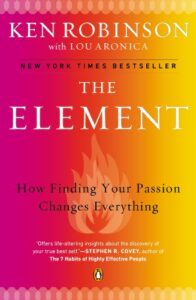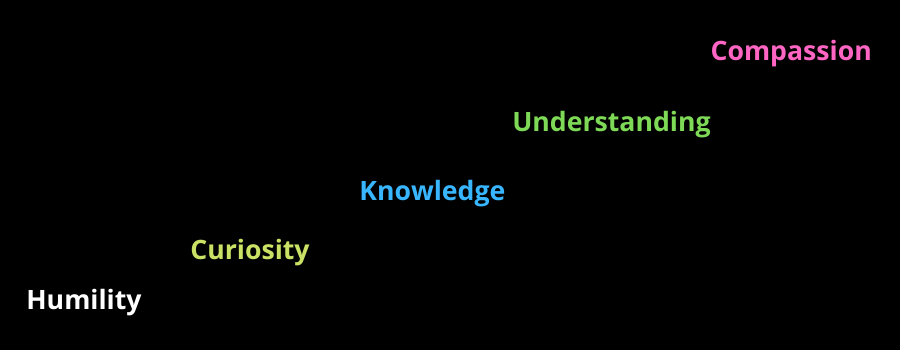Blind Optimism, Not-Too-Much Practicality & A Plan That So Boxes You In There’s No Escape (Season 2021, Episode 9)
Podcast: Play in new window | Download (Duration: 1:13:05 — 66.9MB)
Subscribe: Apple Podcasts | Spotify | iHeartRadio | Email | RSS | More
On Saturday, May 29, 2021, I watched a suggested YouTube video. It was a 2014 award-winning documentary entitled, RESTRUNG. I guess I watch so many guitar videos that the YouTube algorithm had no problem suggesting I watch this video. Here’s the YouTube description of the video:
He had always considered making guitars a passion, not an occupation. In 2007, Randall Wyn Fullmer, an ordinary guy with a cat, decided to turn his life-long hobby into a full-out obsession. To launch his adventure he did what anyone else would do — he quit his high paying dream job at Disney, leaving behind a successful 20 year career of creating major motion pictures such as “Chicken Little” and “The Emperor’s New Groove”. It seemed to make so much sense at the time! With Disney in the rear-view, he launched his self-proclaimed “Mad Plan”, crafting small-batch bass guitars full time. From a beginner’s electrifying success to near break-down, this is a beautiful, honest and inspirational portrait of a passionate craftsperson who walked headlong into a foolhardy dream … a true tale of a life unwound and restrung.
You can check out Randall’s website, Wyn Guitars. Watch the documentary and you’ll be motivated to cheer for his continued success. And more.
A little over one minute into the documentary Randall says this…
Blind Optimism, Not-Too-Much Practicality & A Plan That So Boxes You In There’s No Escape
Randall had figured out what he believed were the ingredients for success. I won’t spoil the documentary for you, but I will tell you that it’s not a story of a man who ditched a successful career at Disney only to experience hockey stick growth curve success. Mr. Fullmer has ups and downs. Like all the rest of us. Watching his journey made his quote even more powerful for me.
Besides, only days earlier I had shared a graphic on social media.
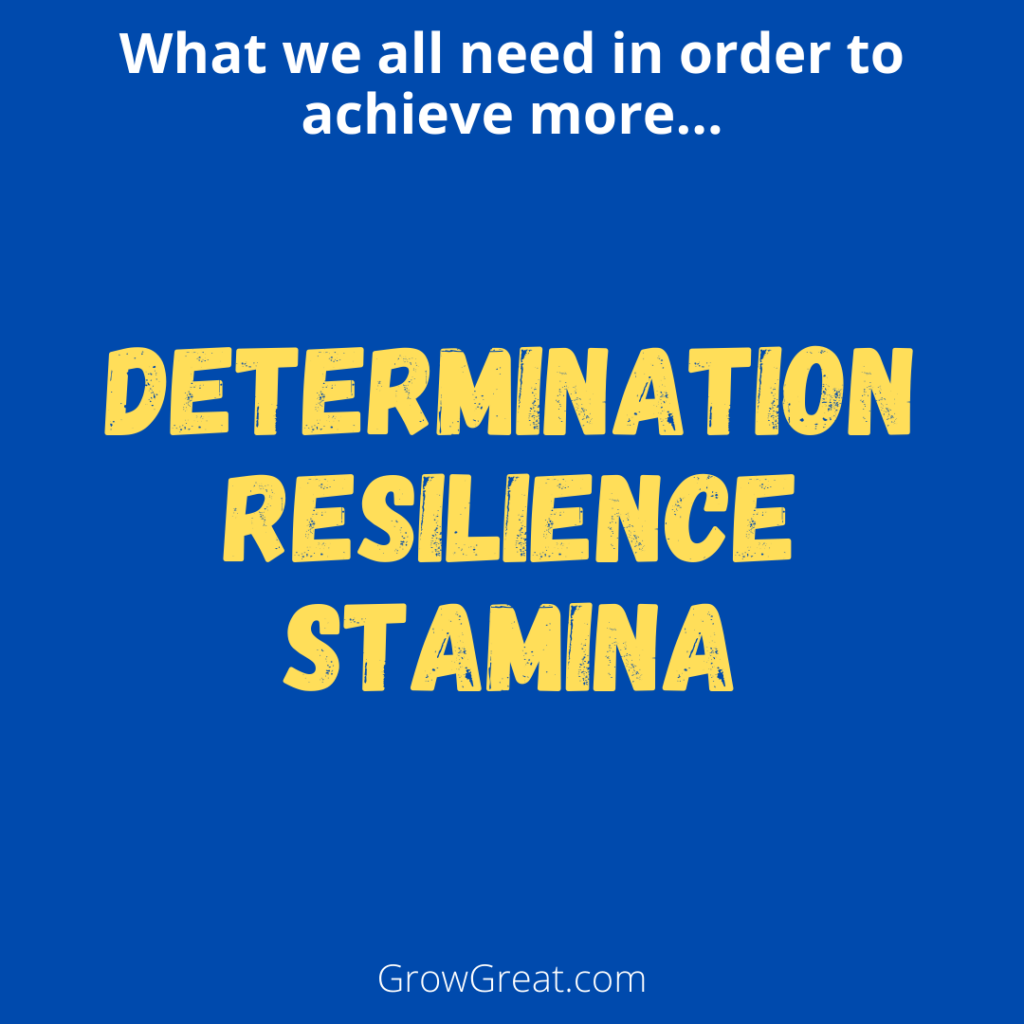
I suppose the earliest observers of success and achievement figured out how important it is to refuse to quit. One of the best quotes is from Babe Ruth.
You just can’t beat the person who never gives up.
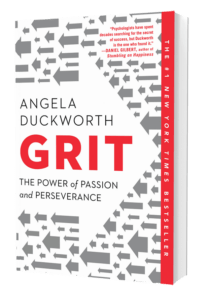 Well, maybe you can, but it’s extremely tough. Angela Duckworth is a Wharton professor at the University of Pennsylvania who wrote a book entitled, Grit: The Power of Passion and Perseverance.
Well, maybe you can, but it’s extremely tough. Angela Duckworth is a Wharton professor at the University of Pennsylvania who wrote a book entitled, Grit: The Power of Passion and Perseverance.
From an old-time baseball player to a modern-day researching university professor, there’s plenty of evidence that sticking with it can pay off. This much is sure, if you quit, you’ll never achieve whatever you’re chasing.
Randall, the guitar maker, stated it differently. And I was immediately taken by how he voiced his beliefs about the requirements of achievement, especially when you’re pursuing something creative. Like building guitars. I wonder how his Disney career influenced his wording – and his point of view. He had experience in collaborating with extraordinarily creative people. That’s why I listened to his insight more intently. He was credible. And humbly vulnerable sharing things he didn’t have to share, but in doing so helping us learn and better understand his journey.
Based on the volume of books and courses copywriters learned decades ago that people are attracted to formulas, secrets, and blueprints for success. While chasing success we’re tempted to think the people already on top of the mountain of success know something the rest of us don’t. Surely they’ve got the secret, formula, or blueprint. Then all the charlatans emerge posing as gurus. We don’t know who is genuine and who isn’t. Desperate to find the path toward the life of our dreams, we read, follow, consume and buy whatever it is they’re selling. Only to be disappointed that the secrets they share with us – for a fee – aren’t moving us any closer to our dreams.
Just before hitting record, I got an email invitation to attend a free webinar, The Secret Formula for Success. 😀
Randall knows why that’s what’s being sold. So do we.
Listen to what he said – the ingredients he determined were most needed for him to reach his goal of building a successful guitar building business.
Blind Optimism, Not-Too-Much Practicality & A Plan That So Boxes You In There’s No Escape
Ain’t nobody gonna line up to buy that book. Or course. People aren’t going to pay hundreds or thousands of dollars for an online course about those things. Because those things sound hard. Secrets, formulas, and blueprints don’t sound hard. They sound like something people just hand over to us. As one female marketer says about her multi-thousand dollar course – “it’s literally a business in a box.” That inspires buyers to invest thousands – I’m told it’s about $6,000 – because they desperately want somebody to make it easy. This attractive female marketer makes the promise people willingly buy.
But this isn’t about Internet marketing ploys and fake promises. It’s about Randall’s brilliant insight. His beliefs about what it would take for him to embark on this brand new business-building adventure. And it’s not his secret, formula, or blueprint. It’s a lot of hard work. Arduous. It requires that grit, determination, and stamina that so many observers and professional researchers have concluded are required to become a high-achiever.
You may be inclined to critique or edit Randall’s wording, but let’s avoid being ticky-tacky. For instance, blind optimism isn’t really blind. It’s not without some evidence or purposeful viewpoint. And it’s not just random. We choose our optimism based on something. Maybe mostly on what we want. But there is a basis so let’s just go with it knowing how Randall likely meant it. That’ll be easier for you to do after you watch the documentary and you see the man’s devotion to his craft.
Blind Optimism
Choosing to think the best rather than the worst is hard work. Harder for some than others.
You’re called to the boss’s office. What are you thinking?
“Oh great, I’m getting a raise!” ?
“Oh no, what have I done?” ?
Yeah, it’s that last one.
Reminds me of that old joke.
Worried that their son was too optimistic, the parents of a little boy took him to a psychiatrist. In an attempt to dampen the boy’s spirits, the psychiatrist showed him into a room piled high with nothing but horse manure. Instead of displaying distaste, the little boy clambered to the top of the pile and began digging.
“What are you doing?” the psychiatrist asked.
“With all this manure,” the little boy replied, beaming, “there must be a pony in here somewhere.”
When it comes to your own achievement – pursuing your own success – what’s the downside of optimism? Overall, I don’t see much of a downside in being an optimistic person. For years the only kickback I’ve gotten is, “You’ll be disappointed.” My retort is simple, “You’re gonna be disappointed anyway, so where’s the risk?”
But there are some downsides when it comes to personal optimism – that is, optimism about yourself and your own abilities. That’s a bit more precise than an overall optimism.
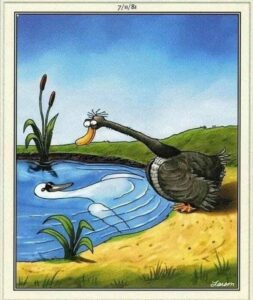
We all know people who aren’t nearly as terrific as they think they are. Full of themselves. They’re overly optimistic (yes, I think there is such a thing) about themselves. They think more highly of themselves than they should. Self-centered. Self-focused. Self-absorbed. Life is all about them.
The downside? Well, this podcast has no time limits, but I really don’t want to spend a ton of time talking about why that’s a bad way to live. Mostly, because I live and work with one notion and point-of-view. It’s one that I don’t always get right, but I know I should. And when I slip, I know I need to give it greater effort. I use one phrase to express it: a focus on others!
Yes, it’s a personal philosophy that I choose to embrace. Yes, it has caused me – at a variety of moments in my life – to question myself and think less of myself than may be healthy. I also have to sometimes wrangle that to the ground, admitting that many times it wins pinning me to the dirt, making me cry, “Uncle!”
But is optimism, even if it’s self-focused, a bad thing? Yes, when it makes us delusional about the reality of our limitations and weaknesses. And sadly, some folks think optimism is literally blind because we ignore reality or evidence. Well, that’s foolishness.
Over the weekend, singer B.J. Thomas died of stage four lung cancer. He lived here in DFW. He was 78. Optimism wouldn’t prevent him – it couldn’t prevent him – from dying of lung cancer. Sadly, B.J.’s reality was that he had stage four lung cancer. It killed him. Believing the best. Thinking he’d overcome it. Those wouldn’t help. But I rather choose to think he embraced a different kind of optimism during his final days. An optimism that helped him make the most of whatever time he had.
You see the delusion people experience when they think more highly of themselves than they should. You see it in the older man who tries to be physically alongside folks 20 years younger. Whether it’s a game of backyard football. Or climbing on the roof to clean the gutters (Google how many stories you see of older, aging men who die that way). Accepting the reality of our limitations can be tough – but wise!
No matter how hard or harsh the reality, knowing it and accepting it is vastly better than not knowing or not accepting the truth.
The truth. There’s the rub.
Just the other day this video was published on YouTube. It’s produced by The Art Of Improvement and is entitled, To Have The Great Life You Deserve, Do These 6 Things. It’s 4:30 minutes long and typifies the messages we hear daily.
- Believe you are worthy.
- The Universe is your ATM. (but only if you make great deposits often)
- Create time to think and dream.
- Minimize the toxic input.
- Get off the couch and act.
- Know who the real judge is. (don’t worry about what others think)
- Believe you’re worthy would be better replaced with “be worthy.” Be a good human. Behave wisely. Not selfishly.
- The Universe is not your ATM. It’s much less about making deposits and withdrawals as it is “you reap what you sow.” See the first point of being a good human. Act in ways that are honorable and right. It’s a better route to go, but it won’t guarantee you’ll never be mistreated. The Universe is never going to bend to your will. But your mind will. And that’ll drive how you act and behave. You’re responsible for your actions, not the Universe.
- Creating time to think and dream is necessary because “as he thinketh in his heart, so is he.” We tend to be what we think about because our thoughts determine our choices and actions. Again, it’s all “reap what you sow” in full effect. And it’s always true.
- Minimize the toxic input. Agreed. That includes people and situations. Toxic is defined as things harmful to your growth and improvement. Things, circumstances, and people who don’t help you be your very best. It’s not about people who disagree with you. If you want to be a drunk, drug addict and think the toxic people are those who would help you get and stay sober — well, you’re not seeing reality. You are the problem!
- Get off the couch and act. True enough. Thinking and dreaming are terrific activities, but the world is filled with good intentions. The power is in the doing. Do something.
- Know who the real judge implies (and the video states) is YOU. Well, kinda sorta. You get to make up your own mind. God is the final Judge. I’d suggest you not leave Him out of things, but you can if you want. The context of the video is dealing with critics. We all have to silence the unfair, unsafe critics – those who don’t want or care about our best. WE all live in glass houses, but some of us walk around with our bags of rocks looking to throw.
This kind of advice permeates our culture today. In short, it’s always got a similar theme. Be your own god. Forget everybody else. Expect the world to bend to your strongest desires so you can get what you deserve. Let me tell you – it’s likely a great thing that most of us don’t get what we deserve. Mostly, we get much better than what we likely deserve. 😉 #JustSaying
Take Control Of Your Own Success
This is another social media headline I saw just on Sunday (yesterday). Those of you who blog or podcast or write…do you ever take off in pursuit of a particular idea or line of thought and suddenly it’s like you bought a yellow car and now you notice all the yellow cars on the road? Within the last 24 hours – which honestly I don’t think are much different than any other 24-hour period – I’ve noticed a barrage of cultural notions about success is (a) designed to market or sell something and (b) which extol the idea that you are in full control. “If it is to be, it’s up to me.”
Don’t get me wrong. We must do all we can. And yes, that means we should pursue improvement, growth – and where necessary, transformation. And I’m all in favor of chasing the ideal outcome. I urge clients every week to get intentional about what they want and why. No, the ideal outcome is never “win-the-Powerball-lottery” kind of a thing. We don’t want to rely on random chance. Else we’re all just sitting around waiting for that Publisher’s Clearing House crew to arrive at our house with a bouquet of flowers and a six-foot-long check. It’s not a productive way to spend your days.
Usefulness. Value. Benefiting others. Making a positive difference.
Those are the things that matter. That’s how to spend a good day! Doing something worthwhile.
After that, of course, we hope serendipity, time, and chance work to our advantage. Sometimes they do. Sometimes they don’t. Either way, we’re doing something of value to ourselves and others.
Not Too Much Practicality
There’s something to this. Figuring out the balance between practical and not too practical may be one of the tougher challenges. If you’re too practical then you’re not likely pushing or challenging yourself enough. If you’re too impractical then you risk being deluded. And there’s the reality that innovation, growth and change happen when we let go of being too practical. It’s also why the critics come out of the woodwork when we’re working to create something new – including a newer and better version of ourselves.
Years ago I laughed at a cartoon that showed two gorillas, one on all fours and the other walking upright. His buddy on all fours remarked, “Stop that, you’ll hurt yourself.” So it goes with our efforts to do something different – something that might be creative or innovative.
“Don’t be distracted by criticism. Remember – the only taste of success some people have is when they take a bite out of you.”
– Zig Ziglar
“Any fool can criticize, condemn and complain – and most fools do.”
– Dale Carnegie
The past dozen years of coaching executives, business owners and city government leaders has proven to me that high-achievers crave being challenged to grow and improve. Sadly, many of them just haven’t found somebody capable of doing that while simultaneously making them feel safe. That’s where I come in. My clients know that I only want their very best. Nothing more. I have no hidden agenda. No secret goals. They’re in control of their own lives – to the degree any of us are. They establish their objectives. I just work to help them figure it out more quickly, then to help them navigate life so they can make it happen! Much of the work is helping them see beyond the merely practical to see – and believe in – the things they couldn’t see earlier.
At some point, I began to use the graphic below with clients. “Look at this and tell me what you see.” Most say they see a young woman. “Do you see anything else?” Most say no. I tell them to keep looking. Then, rather than let them languish, I’ll give them a hint. For instance, I may say, “Look at the young woman’s jawline. That’s the nose of an old woman. Do you see her?” Some see it instantly. Many don’t. They stare at it for a few more seconds before they see it.

Now that they see both the young woman and the old woman, they can’t unsee it. What was impossible to see before is now easy. Hence my favorite quote…
Everything is hard…until it’s easy.
Seeing the young woman, in this instance, is practical. Seeing the old woman is less practical. You may need to be less practical when it comes to your own pursuits and accomplishments. Note that I’m not talking about being impractical in life affairs – like finances, or marriage. We’re not talking about leaning into selfish foolishness. We’re leaning toward wisdom when it comes to challenging ourselves to achieve never-before-realized accomplishments.
A Plan That So Boxes You In There’s No Escape
Some describe this as a “burn the boats” strategy, which is taken from a mythical story (we don’t know if it’s true or not; I’m highly suspicious).
In 1519, Captain Hernán Cortés landed in Veracruz to begin his great conquest. Upon arriving, he reportedly gave an order to his men to burn the ships in which they arrived in.
The point was to avoid giving the men an opportunity to go back. He wanted to move forward. To make the conquest. It’s certainly not very practical. I’d argue if he did do it, it was stupid and foolish. Like the decision that goes well and makes one a hero versus the decision that goes poorly and makes one an idiot. I don’t much like those odds or potential payoffs. The gap between winning and losing seems too wide to me. But what do I know. I’ve never adventure to far away strange lands. And don’t plan on it. So there’s that! Plans.
I follow a guitar player on YouTube who ends each video with the saying, “No plan B.” It’s another common phrase that means the same thing as “burn the boats” but it just sounds less foolish to me. Besides, I happen to know success is often found not in plan B, but in plan M. Or R. Or V. Or Z.
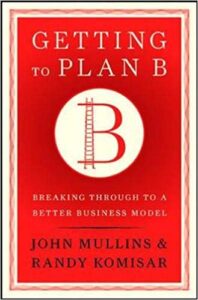 In 2009 a book was written illustrating the truth of such, Getting To Plan B: Breaking Through To A Better Business Model by John Mullins and Randy Komisar. Many businesses have found big success not with plan A, but with some plans more fully developed after plan A didn’t work out.
In 2009 a book was written illustrating the truth of such, Getting To Plan B: Breaking Through To A Better Business Model by John Mullins and Randy Komisar. Many businesses have found big success not with plan A, but with some plans more fully developed after plan A didn’t work out.
At some point in venture capital-driven entrepreneurship, the term pivot entered. Tons of extremely successful companies pivoted into something they never intended to be. They chased success with plan A only to find it never happened. Forced to consider ways to change, alter, grow, innovate, be more creative – they figured out something else that worked like a champ.
So how can you know when to give up on plan A? I know of no hard and fast rules. It’s personal. It’s individual. We each have to find our way forward. Nobody could learn to talk for you. Or walk for you. You had to do it for yourself. So it is with this.
But the guitar maker, Randall Wyn Fullmer is onto something with his quote.
A Plan That So Boxes You In There’s No Escape – it’s an important idea because it means if we’re going to make progress we have to have a starting point. One that we’re willing to stick with for some period of time in order to give success a chance. It means we make a plan knowing it’s going to take some time. That’s where it gets very personal.
A guy works in construction. He’s newly married. He plays music and writes songs when he’s not swinging a hammer. He loves it. His wife, friends and family think he’s pretty good. But he’s not sure they count. He’s right, but not entirely. The encouragement is valuable. He dreams of moving to Nashville to see if music might be something he could be paid to do. With his wife’s encouragement, they develop a plan to move to Nashville. The plan is a pretty nice box. They agree to take the money they’ve saved, go to Nashville where he has a construction job lined up that will afford them to support themselves. His wife has a job lined up, too. A job that pays enough to allow him to take a job working fewer hours so he can concentrate more on music. “Five years,” they agree. “We’ll give ourselves 5 years to see if we can make music for a living.” Off they go with their plans. Time will tell if he can make it within 5 years. Will he achieve any traction during the 5 years? What if he’s feeling close as he enters year 5…will he give it an extra year? That’s for him to figure out, along with his wife.
The reality for him – and for Randall – is that there’s always an escape. The sentiment is to not give yourself an easy out. Randall and others who are pursuing a dream know you can’t quit every time you have to do something uncomfortable. Or something you’d rather not do. Everybody has to endure doing things we’d rather not do. We need to be boxed in enough to push through such things. For Randall, in his guitar making efforts, it’s sanding. He hates sanding. But guess what guitar making – high-quality guitar making requires lots of? Yep, sanding. So if Randall wants to be a successful guitar maker, then he’s got to push through days of sanding.
The Olympic games are getting closer. They were postponed last year due to the Pandemic. Every single athlete competing in the games, regardless of the country they represent, endure things they hate in order to get to the things they love. Maybe it’s different for some, but I dare say they all enjoy the competition more than the training. And there’s some training they hate versus some training they enjoy. They do what they do because overall they love it. It doesn’t require them to love every single minute detail of the pursuit. That’s unreasonable. It’s just not how things work.
People who travel a lot – albeit the Pandemic curbed it last year – will tell you they’re not paid for what they do so much as they’re paid for the inconvenience of traveling. Speakers who appear on a stage for an hour and get five figures aren’t paid because their insights in that hour are so remarkably invaluable. They’re paid because they have to give up an entire day to travel to and from. It’s a hassle requiring hours just to get on that stage for one (hour).
But I know some who love the travel. And the stage time. That’s a real win when there’s nothing you hate, even if there are things you may love more. Most everybody I know have certain things they must do – in order to do what they love – and they hate doing those things. But they love what they love so much it makes what they loathe less offensive. Randall hates sanding, but he loves plugging in a finished guitar to test it by playing it. The sanding doesn’t matter in that moment. And when he’s sanding he’s reminded of how great it feels to plug the instrument into an amp for testing.
“Don’t make a mistake from which you can’t – or may not be able to recover.”
Not all mistakes result in equal consequences. Some choices and decisions have higher risks. That’s why the failure of plan A may not be so bad if it helps us form a successful plan B. Is it giving yourself an escape? Not really because we don’t embark on a high-speed chase of plan A thinking it won’t work out. Or thinking we’ll have to hit the eject button. But if a time comes demanding we make a different decision – some adjustment – then we have to be open and courageous enough to make a better decision.
What’s holding you back? Right now. Today. At this moment.
But first, let’s think about what we’re pursuing. Happiness is a common answer. In fact, it may be the number one answer. But what is happiness? Answers I’ve heard include “being able to do what I want when I want,” and “the freedom to control my schedule.” That sentiment seems to be at the heart of how we view happiness. Being the curious type I am, I wonder who on the planet has that? Think of the most powerful people on the planet. Like the richest. Or country rulers, including the President of the United States, arguably labeled the most powerful person on the planet. None of them have what people feel like they need to be happy! Rather, they each likely endure impositions few of us can relate to.
So is happiness really the ideal outcome?
Think back over your life. Think about your moments of sadness and sorrow. Think about the times you’ve suffered.
Keep thinking. Now think about the times of relief. The times the news was good. Even great.
If you were to plot the events and emotions of your life would the graph look like a roller coaster or would it look like a straight line with an upward trajectory? Delusion causes us to think there are real humans who don’t suffer. Or experience the sorrows we’ve endured. But they have. All of them.
Delusion also causes us to think happiness is the pinnacle of achievement, but nobody knows how to capture it to make it a long-term sustainable experience. For a simple reason. It’s not possible. We’re pursuing an impossibility – not an impractical goal.
Let me end by challenging us to consider other pursuits. Like peace. Contentment. Purpose. Valued.
It’s like sanding for Randall. In that moment, he’s not happy. But he’s contented and at peace. The purpose of sanding matters more to him than the act. It results in a value that’s hard to measure because guitarists appreciate the feel and quality of a properly sanded instrument. Randall himself appreciates the outcome of his own arduous chore. It’s not about happiness – being to do what you when you want. Rather, it’s about doing what is necessary because your pursuit is beyond yourself. Because in the end, it’s not about you. It’s about others.
Breakthrough. That’s what most of us need. Some of us want it.
We can get it. Likely by being humble, vulnerable and open. Less likely by trying to tighten our grip. Or by attempting to control everything in our lives.
Turn loose. Hit pause. Sprint. Catch your breath. Sprint some more. Jog a bit to let your heart rate catch up. And to let your lungs relax. Then take off zigging and zagging as if you’re dodging bullets. Pick a spot ahead and now run straight toward it. Stop and heave if you must. But don’t quit.
Decide. Do. Rest. Recover. Go again. Think. Ponder. Adjust. Go some more. Recover again. Persist. Figure it out. ‘Cause that’s the point.

Epilogue
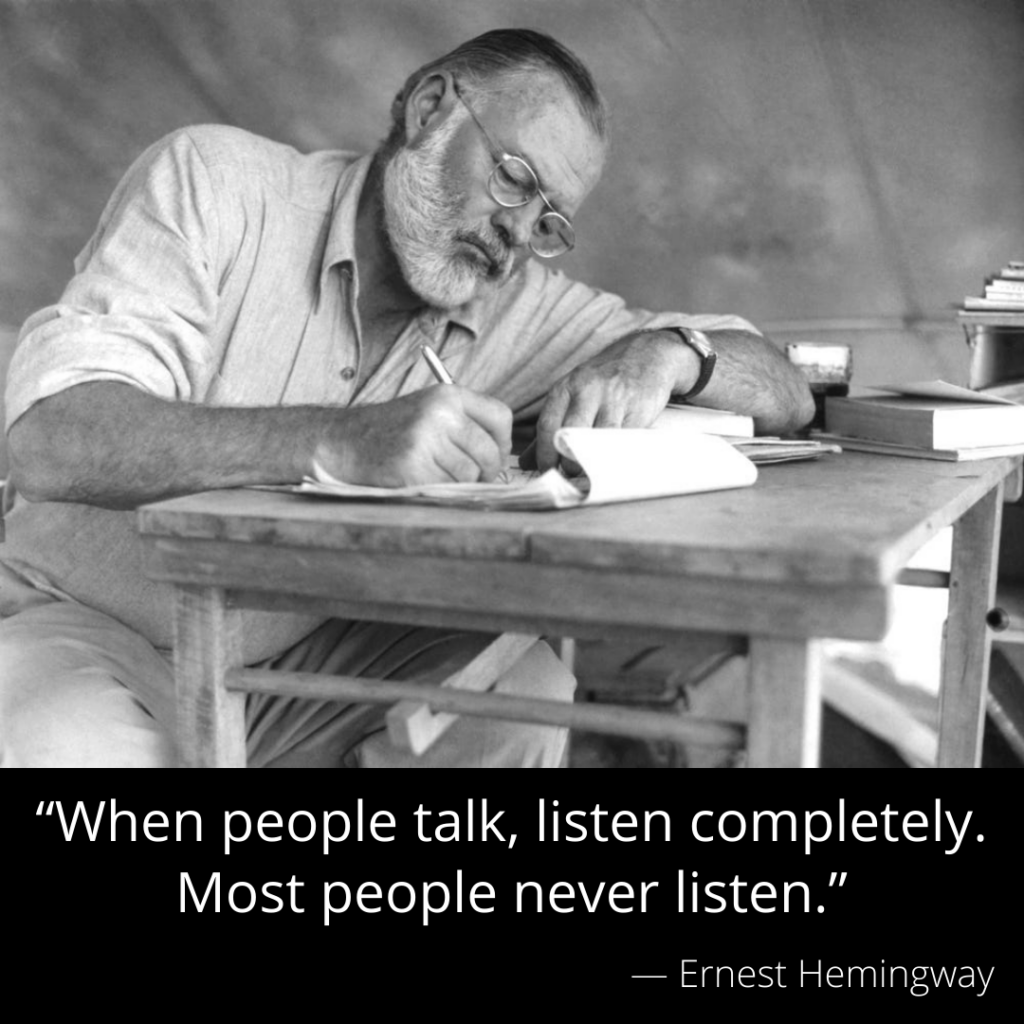
Abraham Lincoln said, “I don’t like that man. I must get to know him better.” All of us are going through things. Some of us are enduring things nobody truly knows or understands. Today I’m thinking of some folks who are enduring the suffering of death in their family. Others I know are going through family trauma due to betrayals and abandonment. Some are in the middle of a career or financial crisis struggling to find some path forward. Any path.
I think of the suffering and struggling that I know about, then I quickly ponder all the suffering going on among people I know personally – suffering I know nothing about. Not that I should know. Or that I need to know. Some things are confidential and private. And even if I did know, I’m not the right person for every service. I know my lane and consciously try to stay in it.
Like you, I know my own struggles. My wife knows most of them, too. But not all of them. Some are unknown by anybody else. Don’t we all operate that way?
Then proceed to understand you don’t know all the sorrows and suffering of others. Step carefully. Be gracious. Practice empathy. Display compassion. It may help you figure out your own stuff better. It sure can’t hurt.
“Before we can forgive one another, we have to understand one another.”
―
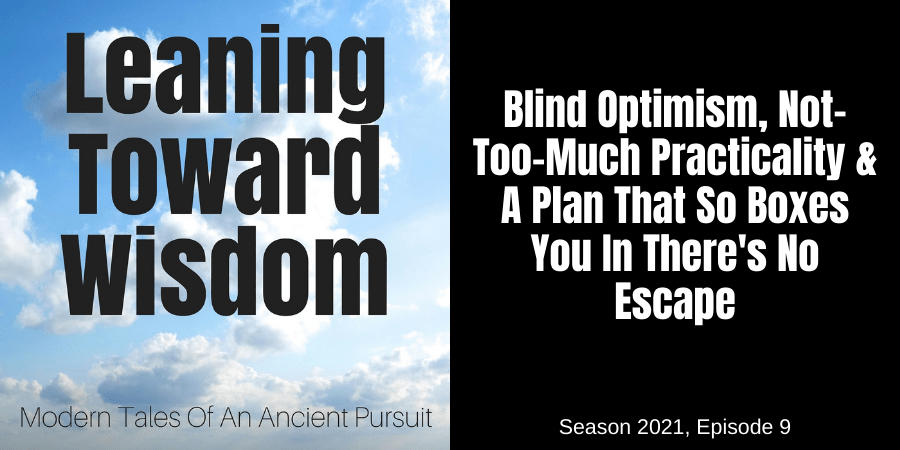
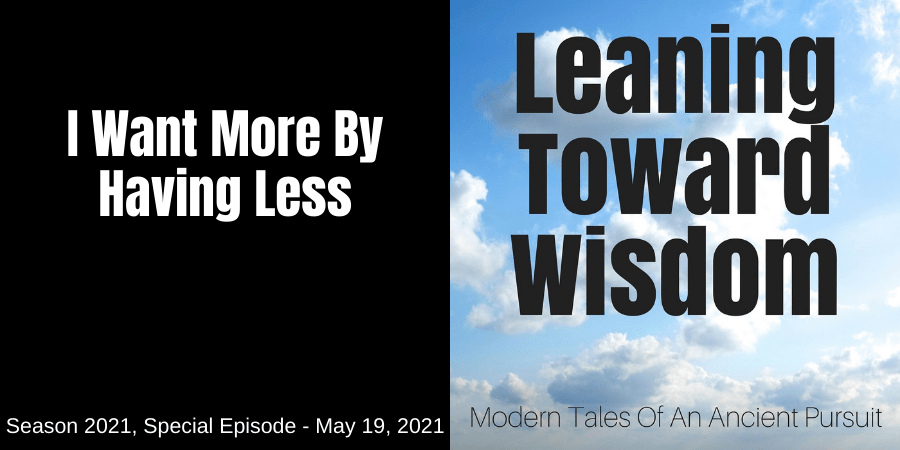
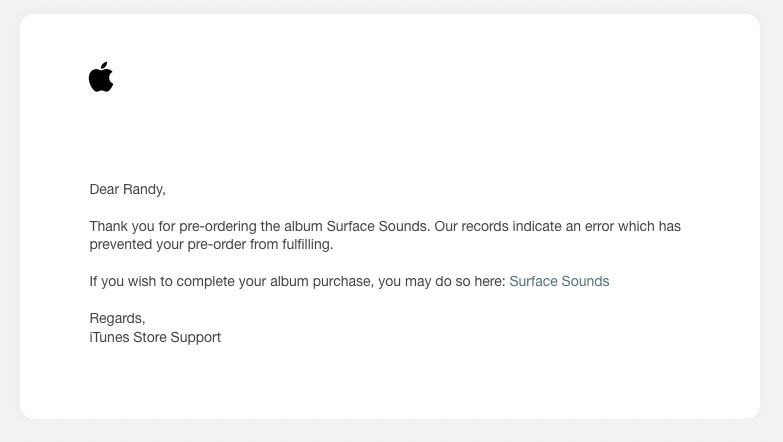
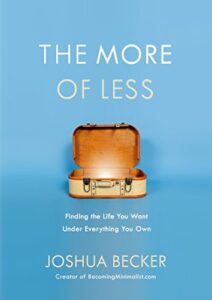
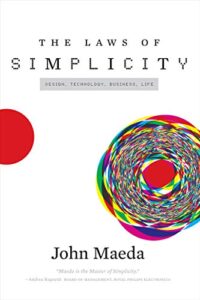
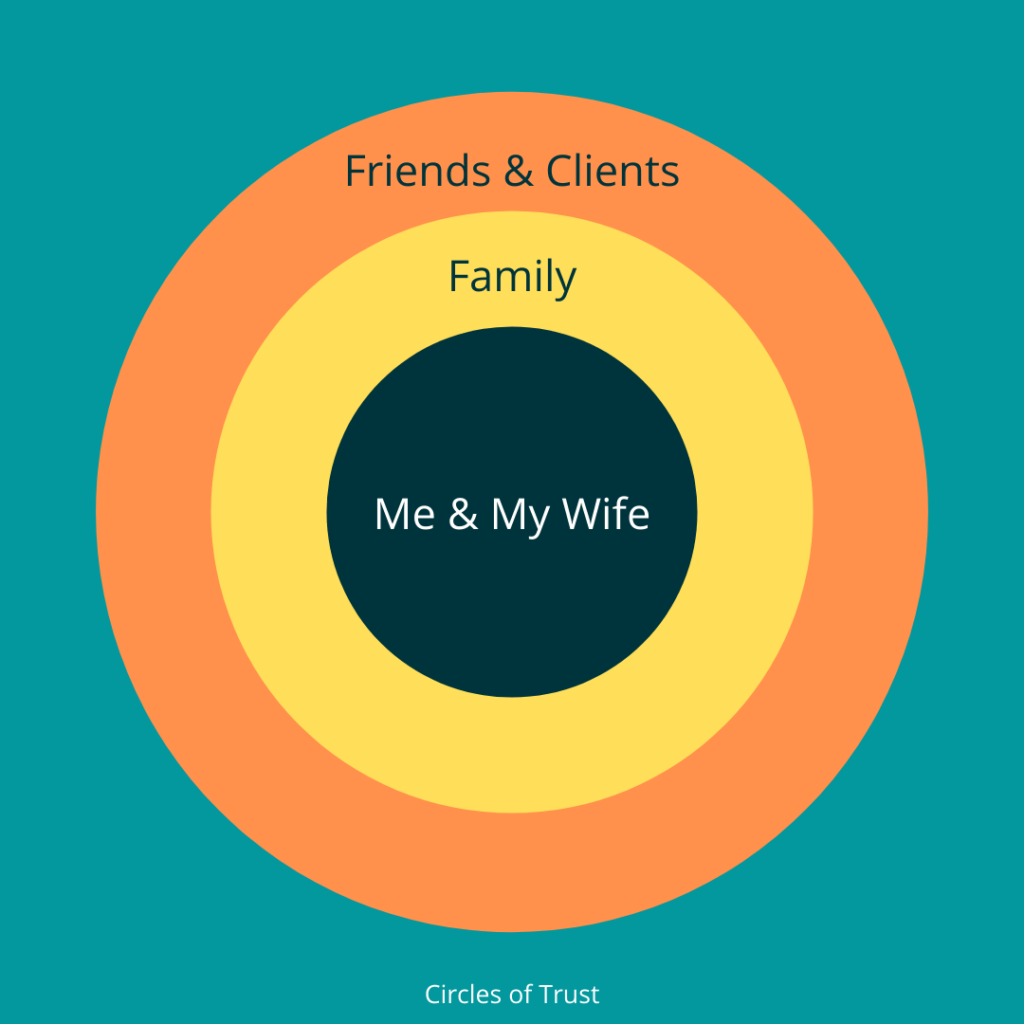

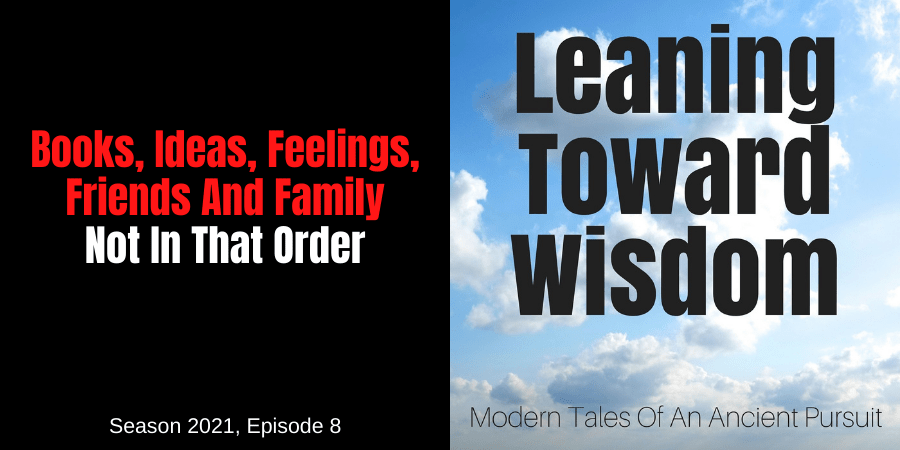
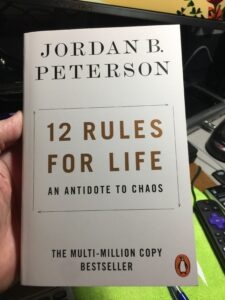
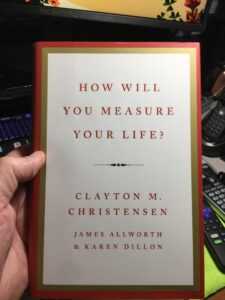
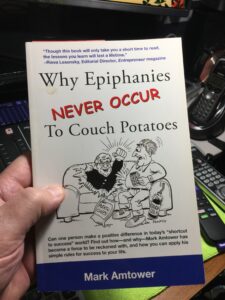
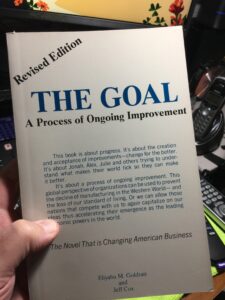
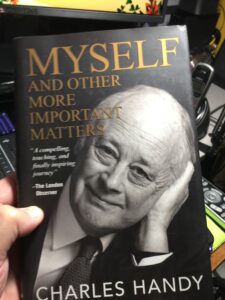
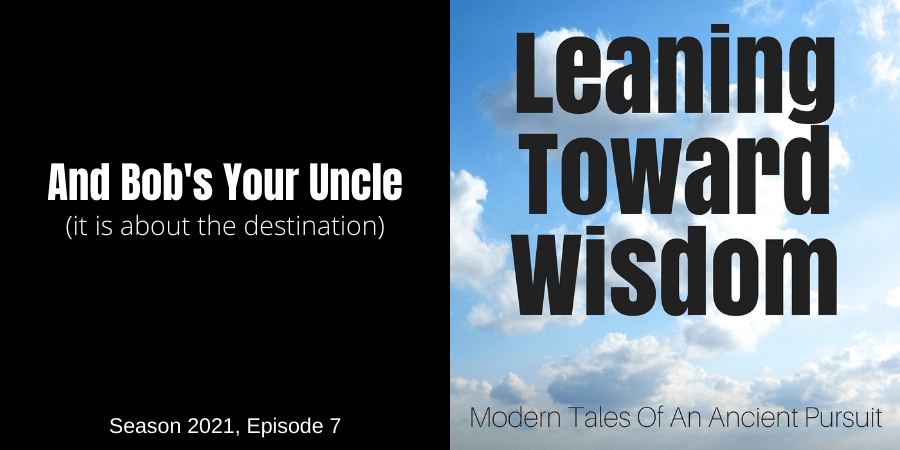
 I’m pretty determined to keep this bit going as long as possible. Or until I can get him a T-shirt. Or maybe until I can get myself one.
I’m pretty determined to keep this bit going as long as possible. Or until I can get him a T-shirt. Or maybe until I can get myself one.